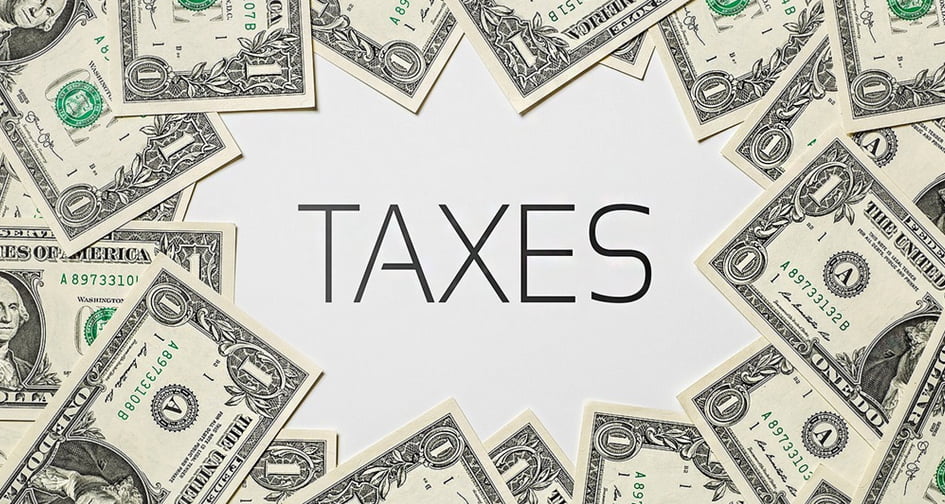Gambling may have been in existence for more than 2000 years but it still isn’t illegal in every part of the world. While gambling is regulated in most developed countries, there is an outright ban in other parts. As with every other industry, the gambling industry brings in taxes to the government. The percentage of gambling income that goes to the government varies from country to country and even state to state. The tax regulations depend on state and federal laws. For example, some states demand that individuals report their gambling winnings themselves. In some other states, taxes are taken from the casinos directly. So, they automatically deduct the tax from your winnings before you are paid out to ensure that the government gets their due.

Which Countries Get the Most Out of Gambling Taxes?
1. Austria
The gambling industry in Austria is not as free as the gambling industry in many other parts of the world. There is a strong monopoly in this country and 12 out of 13 casinos in Austria are owned by one company, Casino Austria. Casino Austria had been the dominating force in the gambling industry in Austria since it was developed in 1934. The government doesn’t tax gamblers from their winnings but they take 2% on all stakes from online and land-based casinos. All online casinos are required by law to pay a 40% tax on their gross gaming revenue minus stake winnings. So, after removing the amount of money they payout to players yearly, they have to pay tax on the rest of their earnings.
For lottery games, the government takes 27.5% of all stakes as taxes. Slot machines in Austria attract different taxes depending on ownership. If the machine is located in a land-based casino, the operator will have to pay 30% of the net gaming revenue in taxes. If the machine isn’t located in the land-based casino but is owned independently, only 10% is required for tax.
2. Germany
On a global level, Germany is one of the companies with the highest gambling tax requirements. The government takes 19% of the gross casino revenue. The gross revenue refers to the total money wagered in the casino minus the winnings paid out. It doesn’t matter if you’re a foreigner or you’re a German citizen, as long as you’re a gambling service operator in the country, you are under obligation to pay hefty taxes to the government. The sports betting industry attracts 5% taxes and lotteries are taxed at 20% of the total amount staked. The benefit of the tax regulations in Germany is that the players aren’t obligated to pay taxes on their winnings.

2. Czech Republic
Czech Republic is another country that depends on gambling taxes from gambling operators but not from players. While gambling wasn’t a booming industry in the 80s, things took a different turn in the 90s and the government has been benefiting from that since then. All casino operators are required to pay between 6% to 20% of their profits on taxes. The percentage required depends on several variables including the size of the casino, the amount of money they make, and the type of games they offer among other things. Most major casinos in the country pay the lower end of the tax range.
3. Australia
Australia is one of the best places to gamble in the world since winnings are not taxed by the government. It doesn’t matter if you hit a jackpot of $300,000 or $30,000,000, the government doesn’t take a dime in taxes. They consider gambling a recreational activity. So, any money you win from gambling is as a result of luck rather and not income from a profession. The government only taxes the casino operators and the rate varies from city to city. In some cities, the tax can be less than 1% of the casino’s gross earnings. In other cities, it can be as high as 20%.
4. Bulgaria
Bulgaria has been a hub for gambling since 1933 but it wasn’t a licensed recreational activity until 1998. This was when the taxation law was put in place. Before they can get an operating license, a casino must pay €17,500. After this, they still need to pay taxes based on their earnings. They are required by law to pay a 15% tax on the value of the bets per game. Online gambling is also taxable as it has been since 2008 when it was legalized. However, clear regulations about online gambling were not put in place until 2013. This included a new tax turn over.
5. Finland
Finland might be a popular hub for gambling but it is important to note that gambling isn’t legal in every part of the country. In the whole country, there is only one casino in Helsinki that is allowed to offer gambling services legally. These casinos pay 8.25% of its profits to the government as tax and donate a significant portion to charity as required by law. The good news is that the players will not have to pay taxes on their winnings no matter how big or small.
6. The United Kingdom
In the United Kingdom, gambling taxes can be as low as 2.5% or as high as 40%. The tax is paid from the gross earnings of the casino. Gambling has been legal in the United Kingdom since 1968 thanks to the introduction of the Gambling Act. In 2005, the Gambling Act was amended and this was what requires casino operators to pay 2.5 to 40% of their earnings in taxes. Like with the other countries listed above, players are not required to pay taxes on their winnings.
7. Belgium
Belgium has one of the oldest recurs on gambling in the world. Gambling has been a recognized form of recreation in the country since the 1300s. It is not clear when licensing for land-based casinos started but licensing for online casinos in Belgium started in 2002. However, there is a limited number of licenses for casino operators in Belgium. In exchange for their licenses, they have to pay some money to the government yearly as part of their contribution to the country. Those who manage to get the license will end up paying around 11% to 15% of their gross earnings in taxes depending on the city. Players are not required to pay taxes on their winnings.
8. Malta
Malta has a relatively high taxation system as casinos are expected to pay around 15% to 40% of their turnover. Since the first Lotto Act was established in 1922, casino operators have been paying €46,000 on licensing fees. The primary regulator’s body for casinos in Malta is Lotteries and Gaming Authority. They are in charge of issuing licenses and ensuring that the casinos play nice.
9. Canada
Canadians have been gambling since the 1400s and they are not about to stop now. In 1892, the government placed a blanket ban on gambling. It wasn’t until the early 1900s that the government finally lifted the ban on Horse Racing, Raffles, and Bingo. Things have changed now, casinos are legal in almost every part of Canada. Players are not required to pay taxes whether they gamble online or in land-based casinos. However, the casino operators will have to pay since they earn a living from gambling.
10. Sweden
In Sweden, there is only one casino operator, Svenska Spel. Any other casino operator in the country is acting illegally. So, you can’t report to the regulators if they cheat you or withhold your earnings illegally. With the introduction of the Lottery Act in 2002, Svenska Spel was able to expand its license to cover their online casino as well. The casinos are expected to pay 18% of their gross revenue in taxes.
11. Italy
Italy attracts the lowest casino taxes from operators. They are only expected to pay 1% of their revenue from gambling. The history of gambling in Italy dates as far back as the Roman Empire. However, it was until 1638 that the first legal casino was launched. The gambling industry was allowed to thrive without strict regulation until 2006.
12. Romania
Gambling was a big deal in Romania long before 1945 when the Soviet Union took over the country. This takeover was followed by a blanket ban of all gambling-related activities in the country. The ban wasn’t lifted until 1989. Since then, land-based casinos have been allowed to operate freely as long as they have a license. In 2010, online casinos were made legal in the country but they also required a government license to operate.
13. Denmark
You can’t make a list of the countries with the highest gambling taxes without mentioning Denmark. While there aren’t many casinos in the country, gambling operators are required to pay around 45% to 75% of their gross revenue to the government as taxes. The good news is that you’re not going to pay any taxes on your winnings if you don’t want to.
Bottom line
Many other countries tax casino operators and players as well. In most parts of the United States, players are required to pay taxes on their revenue.




